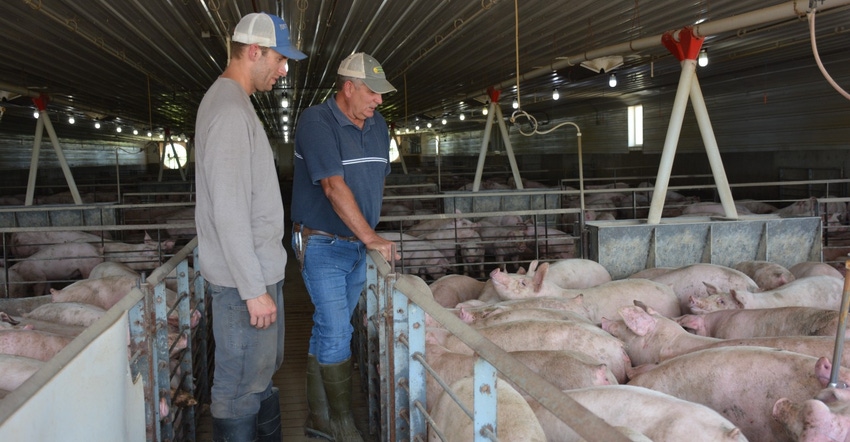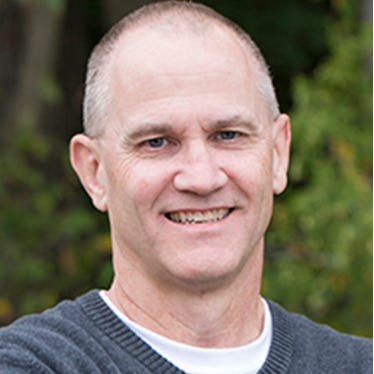
Sustainability goes beyond taking care of animals and crops, and Brad and Peggy Greenway of Mitchell, S.D., are firm believers in telling the agriculture story and being involved.
Brad has been involved in pork producer organizations at the county, state and national level, including serving as the vice president of the National Pork Board in 2016. Over the years, he has helped tell the agriculture, specifically hog production, story through the NPB Pork Checkoff’s Operation Main Street program, giving him a platform to speak to civic groups and classrooms in South Dakota.
Related: Sustainability more than catchphrase for family
In 2016, he gained a broader stage when he was named America’s Pig Farmer of the Year, allowing him to take the hog and agriculture message to a national audience. After his terms on the NPB board of directors, Brad then joined the U.S. Farmers and Ranchers Alliance [now known as U.S. Farmers and Ranchers in Action], serving as that organization’s chairman.
Peggy, though a Twin Cities native, has adapted to farm life, and sees the importance of sharing the agriculture story. Prior to farming full time eight years ago, she was an investment assistant at a brokerage firm. That background as a city girl, she feels, may give her more credence with some of the public that may be misinformed about agriculture. She started volunteering with Common Ground, as “I could really see that their whole mission was trying to create opportunities for us women farmers to visit and talk with consumers, mainly women like ourselves who care about their families and may have some valid questions about agriculture.”
Realizing that a majority of the populace is far removed from agriculture, Peggy believes it is important to find common ground, so to speak, to be able to engage a farming opponent if the opportunity presents itself.
Though a lot of farmers don’t acknowledge or believe climate change exists, that could be an ice breaker into a conversation.
“If you can even just show that you believe in climate change — we’re farmers; we are science-driven — even that kind of opens up some doors,” she says. “We all have an impact. And then you can share all that agriculture has been doing and continues to do” to better the environment and to be more sustainable. “I think it helps to gain respect by being tolerant of different things a little bit, but I always try to bring it back to the science-minded focus.”
While climate change and the environment are hot-button issues, issues that agriculture often receives the blame, the Greenways acknowledge farming does contribute to the issue, but agriculture is also the answer.
“We farmers have a lot of opportunities to slow climate change by sequestering carbon and reducing [greenhouse gases]. Agriculture will be the solution,” Brad says.
Next-gen involvement
The couple’s son, Brent, is getting involved with the South Dakota Pork Producers Council and the South Dakota Soybean Association. Through his soybean association involvement, Brent has been working through the Young Leader program.
As Brad tells it, community involvement started with his parents, Tom and Janice. “We’ve never been ones to just sit back and complain about something,” he says. “If you want to see something happen, try to get involved. We’re ecstatic that Brent is doing that.”
The soybean leader program helps mold people to become spokespeople for agriculture in general and the soybean industry specifically.
“In farming as a whole, we know that there are some people out there that don’t think you are doing a good job. But the case may be that they just don’t know how you’re doing it, so they assume you’re not doing things the right way,” says Brent, adding the program helps communicate with those people. “The program encourages you to promote agriculture and become involved in agriculture, and speak up for agriculture.”
Brad partially credits his involvement with the NPB for giving him the boost to get Greenway Pork to where it is today.
“You’re around progressive people, and it makes you think of things you maybe wouldn’t have thought of,” he says. “We probably wouldn’t be where we’re at in pigs if we hadn’t been involved. It [involvement] gives you that optimism.”
About the Author(s)
You May Also Like






